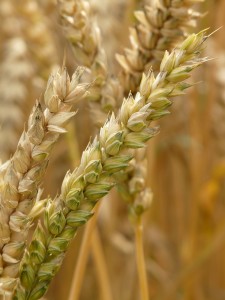In Afghanistan, aid organizations focus on a number of different issues, ranging from women’s empowerment to education. ACTED takes a more holistic approach to its philanthropic work, seeking to address a range of issues in order to build community resilience and provide the Afghan people with the tools they need to build sustainable livelihoods. The organization’s program focuses on three primary goals: developing emergency response and disaster relief resilience, spurring sustainable and inclusive economic growth, and instituting effective policies and governance with the help of community partners.
In 2014, ACTED reached more than 8 percent of the Afghan population with its agriculture, education, infrastructure, and emergency assistance programs. The programs work in concert to develop the resources that communities need to become resilient. Through partnerships with Community Development Councils, District Development Assemblies, and local non-governmental organizations, ACTED drove grassroots economic development and promoted excellent government practices. ACTED also works with the Agency Coordinating Body for Afghan Relief and Development (ACBAR), which represents 135 organizations.
This year, ACTED has focused on expanding its sustainable development programs, especially in Northern Afghanistan. The organization has placed a special emphasis on accountability and transparency in government leadership at both the local and national levels in support of a growing sense of civil responsibility. In addition, ACTED has undertaken projects related to food and shelter security.
Food Security Through the World Food Programme

In partnership with the World Food Programme (WFP), ACTED has sought to increase food security through several different projects. One project, based on e-vouchers, took place in Kabul City over the course of two-and-a-half months. The project targeted more than 4,400 vulnerable households to ensure that they gained access to resources designed to help them meet their monthly nutritional needs. Through the distribution of e-vouchers, families in Economically Stressed Rural Urban Populations (ESUP) will have the resources they need to secure basic items for their families. Another project targets households in need outside of Kabul. Nearly 14,000 people living in districts of Badakhshan province have gained access to needed items through both conditional and unconditional vouchers, as well as food-for-work programs. WFP and ACTED have also supported people in need through emergency food distribution efforts.
Shelter for Displaced Afghan Families
Last year, Northern Afghanistan experienced atypical levels of seasonal flooding, which left more than 110,000 people without homes. Many completely lost their houses and will not be able to return. To respond to this need, ACTED has constructed more than 410 transitional shelters throughout the Badakhshan and Baghlan provinces. While staying in these shelters, displaced families learned about preparing for similar disasters in the future by building shelters in those areas with the lowest risk. In the near future, ACTED plans to build another 340 shelters to support people who lost their homes altogether.
In addition, ACTED is still responding to floods and landslides that destroyed a number of homes in Takhar and Badakhshan provinces in 2012. After targeting the most vulnerable households, the organization has provided training and technical supervision to individuals as they rebuild their homes. Since many of these families lived in remote areas, including valleys that are more than a day’s walk to the nearest urban center, some participants used the opportunity to relocate their homes close to towns, which has significantly increased their access to schools and health care. The households learned how to build shelters using traditional Afghan mud-building techniques so that they could be resilient and self-sustaining in the future.
Fueling Development Through Reliable Access to Water
For a number of years, ACTED has used social water management projects to increase opportunities in remote areas throughout Afghanistan. The initiatives have led to the complete revitalization of a community called Kalta Khoros, which is not far outside of Khwaja Herak in Northern Qaisar. Kalta Khoros existed as a small village long before the war caused desertion of the land, and the name was removed from government maps. Two tribes living in the area fled to the Shaheed Refugee camp in Herat due to limited economic opportunity. However, about 120 families returned in 2010 after becoming disillusioned with refugee life. ACTED extended an offer to join the Khwaja Herak water users’ association, which gave Kalta Khoros reliable access to the water it needed to grow food and meet other needs.
ACTED worked with the area’s farmers to institute farming techniques such as crop rotation to get the most out of the 75 acres of land dedicated to agriculture in the area. The innovations have allowed farmers to produce surpluses that they can then sell at market for a profit. Kalta Khoros is not an isolated incident. ACTED and social water programs have had a similar impact in hundreds of communities throughout Northern Afghanistan.
ACTED’s Youth Development Centers
In Northern Afghanistan, where ACTED is concentrated, only slightly more than a third of children over the age of 14 attend school. The striking figure is a result of the fact that many families simply do not have access to educational facilities. In this part of Afghanistan, 80 percent of the population lives in rural areas, but only 64 percent of schools are located outside of urban centers. In order to address this issue, ACTED has created Youth Development Centers in Faryab province. The centers are designed to teach students subjects not traditionally available at rural secondary schools, such as computer science, English, and literature. Moreover, the academic programs emphasize lifetime learning by teaching students how to access information outside of the classroom setting. At these centers, both boys and girls are able to learn, participate in sporting events, and develop artistic skills.
